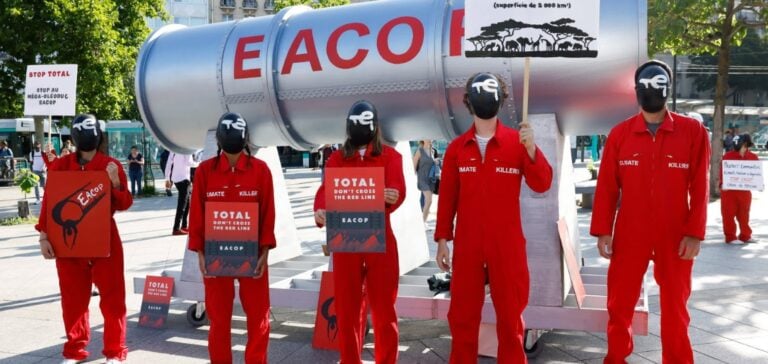The EACOP project, led by TotalEnergies, marks a crucial turning point in oil development in East Africa. Initiated with an investment of ten billion dollars, this project involves Tanzania, Uganda and the Chinese company CNOOC. It includes the drilling of 419 wells in Uganda and the construction of a 1,443-kilometer pipeline linking the Lake Albert oilfields to the Tanzanian coast. Ugandan President Yoweri Museveni, who has been in power since 1986, has hailed this pharaonic project as an economic springboard for the region.
Environmental and social issues
However, EACOP is not without its concerns. Critics focus on environmental risks and the impact on local communities. However, environmentalists point out the threats to the region’s fragile ecosystem and the people living in the vicinity of the project. Opposition from various environmental and human rights associations highlights the dilemma between economic development and environmental preservation.
Dismissal of the legal action
The East African Court of Justice, based in Tanzania, recently dismissed a lawsuit against EACOP. However, the plaintiffs, civil society groups, were dismissed on the grounds that they had filed their complaint out of time. This decision provoked a wave of reactions, with some seeing it as a failure to take account of environmental and social concerns.
Reactions and consequences
Lucien Limacher of Natural Justice criticized the decision, interpreting it as a neglect of environmental and climate impacts. In September, several associations filed a complaint against TotalEnergies for “climaticide”, marking an escalation in the fight against projects deemed harmful to the environment.
Future prospects
Uganda’s first oil is expected in 2025, almost twenty years after the discovery of reserves. This project, according to Museveni, should bring significant economic prosperity, especially for a country where poverty remains a predominant reality. However, the tension between economic development and environmental protection remains a hot topic, raising crucial questions about the future of such projects in Africa and around the world.
The dismissal of the case against TotalEnergies’ EACOP project raises important questions about the balance between economic development and environmental preservation in East Africa.






















